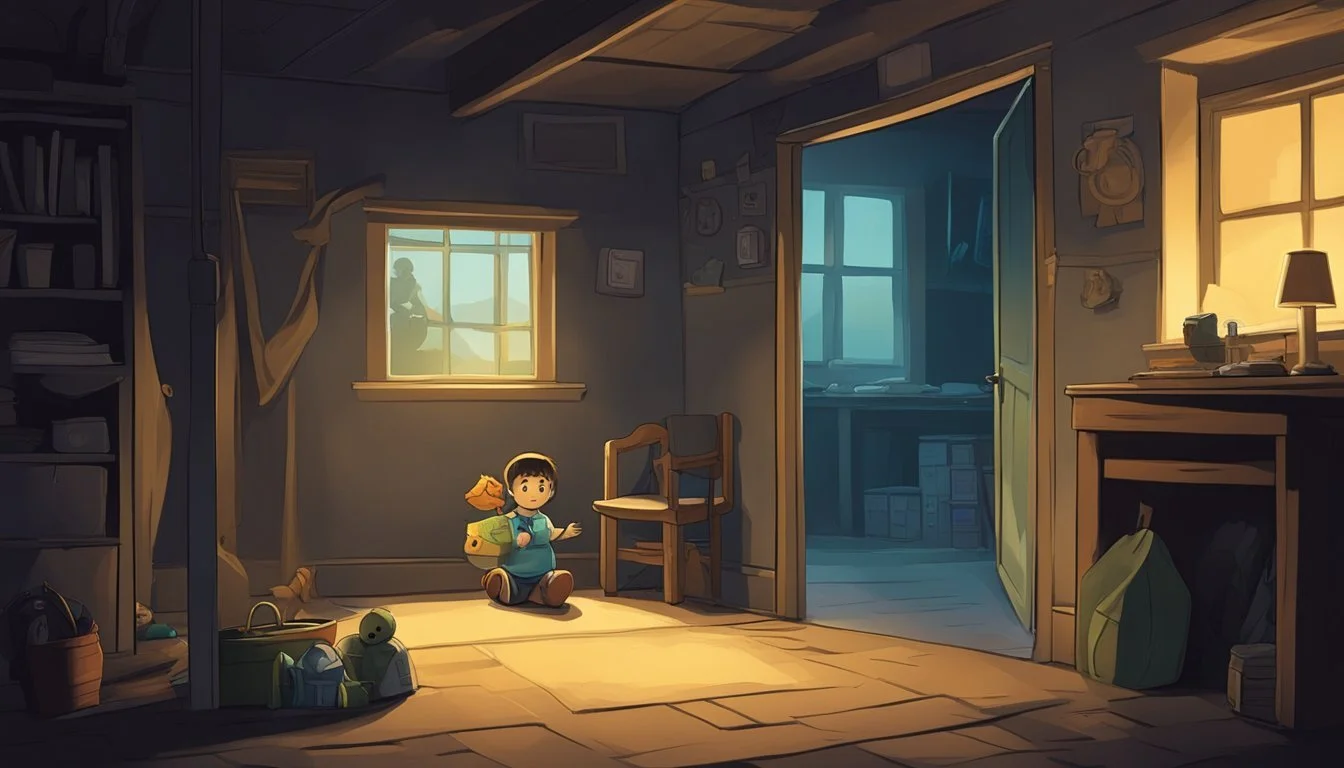Netflix Canada Exposes JonBenét's Killer? Shocking New Evidence Rocks 28-Year-Old Mystery
The Netflix docuseries "Cold Case: Who Killed JonBenét Ramsey" revisits one of America's most notorious unsolved murders. Released in November 2024, this three-part series delves into the 1996 killing of six-year-old beauty queen JonBenét Ramsey in Boulder, Colorado.
The series features interviews with key figures, including JonBenét's father John Ramsey, journalists Carol McKinley and Charlie Brennan, and other individuals connected to the case. Directed by Joe Berlinger, the documentary explores the initial investigation, media coverage, and ongoing efforts to solve the crime.
"Cold Case: Who Killed JonBenét Ramsey" examines police missteps and the media frenzy that complicated the investigation. The series aims to provide a comprehensive look at the decades-long search for justice in this high-profile case that captivated the nation.
Overview of the JonBenét Ramsey Case
The JonBenét Ramsey case shocked the nation and remains one of America's most infamous unsolved murders. This tragic event unfolded on December 26, 1996, in Boulder, Colorado, leading to a complex investigation and intense media scrutiny.
The Tragic Event
On Christmas night 1996, six-year-old JonBenét Ramsey was brutally murdered in her family's home. Her body was discovered in the basement the following day after her mother reported her missing.
The young beauty pageant contestant had been strangled and suffered a skull fracture. A ransom note found in the house added to the mystery surrounding the crime.
Initial Investigation
The Boulder Police Department faced criticism for their handling of the case. Crucial mistakes were made at the crime scene, including failure to secure the area properly.
Evidence collection was compromised, hampering future investigative efforts. Initial suspicion fell on JonBenét's parents, John and Patsy Ramsey, though they were never formally charged.
Multiple theories emerged, but no conclusive evidence pointed to a specific perpetrator.
Public and Media Attention
The case quickly garnered national attention, becoming a media sensation. News outlets extensively covered the investigation, often sensationalizing details.
The Ramsey family faced intense scrutiny and public judgment. The media circus surrounding the case complicated the investigation and influenced public perception.
Nearly three decades later, the murder remains unsolved, continuing to captivate public interest and inspire numerous documentaries and books.
The Netflix Series
Netflix's "Cold Case: Who Killed JonBenét Ramsey" is a three-part documentary series that revisits the infamous unsolved murder. Directed by Joe Berlinger, the series examines the case with a fresh perspective, featuring interviews with key figures and exploring the investigation's missteps.
Development and Release
Joe Berlinger, an Oscar-nominated filmmaker, helmed the project for Netflix. The streaming giant announced the series as part of its true crime lineup. "Cold Case: Who Killed JonBenét Ramsey" premiered on November 25, 2024, making it available to Netflix subscribers worldwide.
The series was developed with access to new information and interviews. It aimed to provide a comprehensive look at the case, addressing both the initial investigation and subsequent developments over nearly three decades.
Synopsis of the Series
The documentary is divided into three episodes, each focusing on different aspects of the JonBenét Ramsey case. It features interviews with John Ramsey, JonBenét's father, as well as journalists and investigators involved in the case.
Episode 1 covers the initial discovery of the crime and the immediate aftermath. Episode 2 delves into the media frenzy and its impact on the investigation. The final episode examines new theories and evidence that have emerged over the years.
The series critically analyzes the mistakes made by law enforcement and the media during the investigation. It presents a balanced view of the various theories surrounding JonBenét's death, allowing viewers to form their own conclusions.
Critical Examination of the Case
The JonBenét Ramsey case involves complex forensic evidence, investigative challenges, and key individuals who have remained under scrutiny for decades. Detailed analysis of the crime scene, crucial pieces of evidence, and the roles of central figures provide insight into this unsolved mystery.
Crime Scene Analysis
The Ramsey home in Boulder, Colorado became the focal point of the investigation on December 26, 1996. Initial police response has been criticized for inadequate scene preservation. Multiple people entered and exited the house, potentially contaminating evidence.
The basement window showed signs of possible entry, but conflicting expert opinions exist on whether it was staged. A ransom note, unusually long at 2.5 pages, was found on the kitchen stairs. Handwriting analysis yielded inconclusive results.
JonBenét's body was discovered in a rarely used basement room, wrapped in a white blanket. The autopsy revealed head trauma and strangulation as causes of death.
Essential Evidence
DNA evidence found on JonBenét's clothing remains a crucial, yet controversial, element of the case. It did not match family members but has not led to a suspect identification.
The murder weapon, a garrote made from cord and a paintbrush handle, was left at the scene. Fiber evidence and unidentified palm print added complexity to the investigation.
Investigators noted pineapple in JonBenét's digestive system, conflicting with the family's account of her last meal. This discrepancy has fueled various theories about the timeline of events.
Key Figures in the Case
John and Patsy Ramsey, JonBenét's parents, faced intense media scrutiny and were considered suspects for years. They maintained their innocence until Patsy's death in 2006.
Burke Ramsey, JonBenét's brother, was nine at the time of the murder. He has been the subject of speculation but was officially cleared by DNA evidence in 2008.
Detective Linda Arndt, the first officer at the scene, faced criticism for her handling of the initial investigation. Her actions became a point of contention in the case.
Lou Smit, a retired detective brought in to assist, developed the intruder theory. His work challenged the initial focus on the family and introduced alternative scenarios.
Impact on Law Enforcement and Media
The JonBenét Ramsey case significantly affected both law enforcement practices and media coverage of high-profile crimes. It exposed crucial flaws in police procedures and highlighted the media's role in shaping public perception.
Police Missteps and Learning
The Boulder Police Department faced intense criticism for their handling of the Ramsey case. Officers failed to secure the crime scene properly, allowing potential evidence contamination. This mistake became a pivotal lesson for law enforcement agencies nationwide.
The case prompted departments to revise their protocols for handling child murders and abductions. Many agencies implemented specialized training programs focused on preserving crime scenes and managing high-profile investigations.
The documentary highlights these errors, serving as a cautionary tale for current and future law enforcement professionals. It emphasizes the importance of meticulous evidence collection and unbiased investigation techniques.
The Role of Media in the Case
Media coverage of the JonBenét Ramsey case was extensive and often sensationalized. News outlets competed fiercely for exclusive information, sometimes prioritizing speed over accuracy.
The documentary examines how this intense scrutiny affected the investigation and public perception. It shows how media speculation sometimes overshadowed factual reporting, potentially influencing the case's direction.
Journalists and news organizations learned valuable lessons about responsible reporting in criminal cases. The Ramsey case sparked discussions about media ethics and the balance between public interest and privacy rights.
The Netflix series itself represents a shift in how cold cases are presented to the public, offering a more nuanced look at the complexities of unsolved crimes.
Unsolved Mysteries and Theories
The JonBenét Ramsey case remains one of America's most perplexing unsolved murders, spawning numerous theories and attracting legendary detectives. Despite decades of investigation, the truth behind the 6-year-old's death in Boulder, Colorado continues to elude authorities and fascinate the public.
Competing Theories
Several theories have emerged over the years regarding JonBenét's murder. One focuses on an intruder, suggesting an unknown individual broke into the Ramsey home and committed the crime. This theory points to unidentified DNA found on JonBenét's clothing.
Another theory implicates family members, particularly JonBenét's parents John and Patsy Ramsey. Supporters of this theory cite inconsistencies in the parents' statements and unusual behavior following the discovery of their daughter's body.
Some investigators have proposed that JonBenét's brother Burke, who was 9 at the time, may have been involved in her death, possibly accidentally. This theory suggests a potential cover-up by the parents to protect their son.
Legendary Detective Statements
Several renowned detectives have offered their insights on the case. Lou Smit, a Colorado Springs homicide detective, strongly supported the intruder theory. He pointed to evidence of a possible break-in and the sophistication of the crime scene.
James Kolar, former lead investigator for the Boulder District Attorney's office, presented a different perspective. In his book, he argued against the intruder theory and suggested the involvement of a family member.
FBI profiler John Douglas, known for his work on serial killer cases, initially suspected the parents but later changed his view. He concluded that an intruder was more likely responsible based on crime scene analysis.
Continued Interest and Speculation
The JonBenét Ramsey case continues to captivate public interest nearly three decades later. True crime enthusiasts regularly debate new evidence and theories on social media platforms and forums.
Recent DNA advancements have sparked hope for solving the case. In 2023, investigators announced plans to use genetic genealogy techniques to analyze unidentified DNA samples from the crime scene.
Television documentaries, including Netflix's "Cold Case: Who Killed JonBenét Ramsey," keep the case in the public eye. These productions often present new interviews and previously undisclosed information, fueling ongoing speculation about the identity of JonBenét's killer.
Visual and Emotional Storytelling
The Netflix series employs powerful visual techniques and emotional storytelling to engage viewers. It blends interviews, archival footage, and dramatic recreations to present the complex JonBenét Ramsey case.
Interviews with Key Participants
The series features candid interviews with John Ramsey, JonBenét's father. His emotional recollections provide intimate insights into the family's experiences. Law enforcement officials, including detectives and forensic experts, offer professional perspectives on the investigation.
Media figures like journalists Carol McKinley and Charlie Brennan share their coverage experiences. Their accounts highlight the intense public interest and media scrutiny surrounding the case.
A pageant photographer who worked with JonBenét provides a unique viewpoint. Their memories of the child beauty queen add depth to the storytelling.
Narrative Techniques in True Crime
The documentary uses archival news footage to transport viewers back to 1996. This approach effectively recreates the atmosphere of Boulder, Colorado at the time of the murder.
Dramatic recreations of key events are tastefully executed. These scenes help visualize complex scenarios without sensationalizing the tragedy.
The series employs a chronological structure, guiding viewers through the case's timeline. This method allows for a clear presentation of events and investigative developments.
Expert analysis segments break down forensic evidence and police procedures. These explanations make technical aspects of the case accessible to a general audience.
Legacy of JonBenét Ramsey
The JonBenét Ramsey case left an indelible mark on American culture and true crime discourse. It reshaped media coverage of child murders and continues to impact the Ramsey family decades later.
Cultural Impact
JonBenét Ramsey's murder captivated the nation, spawning countless books, documentaries, and TV specials. The case became a media sensation, with intense scrutiny of the Ramsey family. It sparked debates about child beauty pageants and their potential dangers.
The investigation's mishandling led to reforms in police procedures for child homicides. Many law enforcement agencies implemented new protocols for securing crime scenes and preserving evidence.
The case also highlighted issues of sensationalized media coverage. Critics argued that the relentless focus on the family was harmful and potentially compromised the investigation.
The Ramsey Family Today
John Ramsey, JonBenét's father, continues to advocate for justice in his daughter's case. He has participated in interviews and documentaries, including the 2024 Netflix series "Cold Case: Who Killed JonBenét Ramsey."
Patsy Ramsey, JonBenét's mother, passed away in 2006 from ovarian cancer. The family faced ongoing public scrutiny and legal battles in the years following the murder.
Burke Ramsey, JonBenét's brother, has largely stayed out of the public eye. He filed defamation lawsuits against media outlets that implicated him in his sister's death.
The Ramseys maintain their innocence and continue to push for new investigations into the case.


